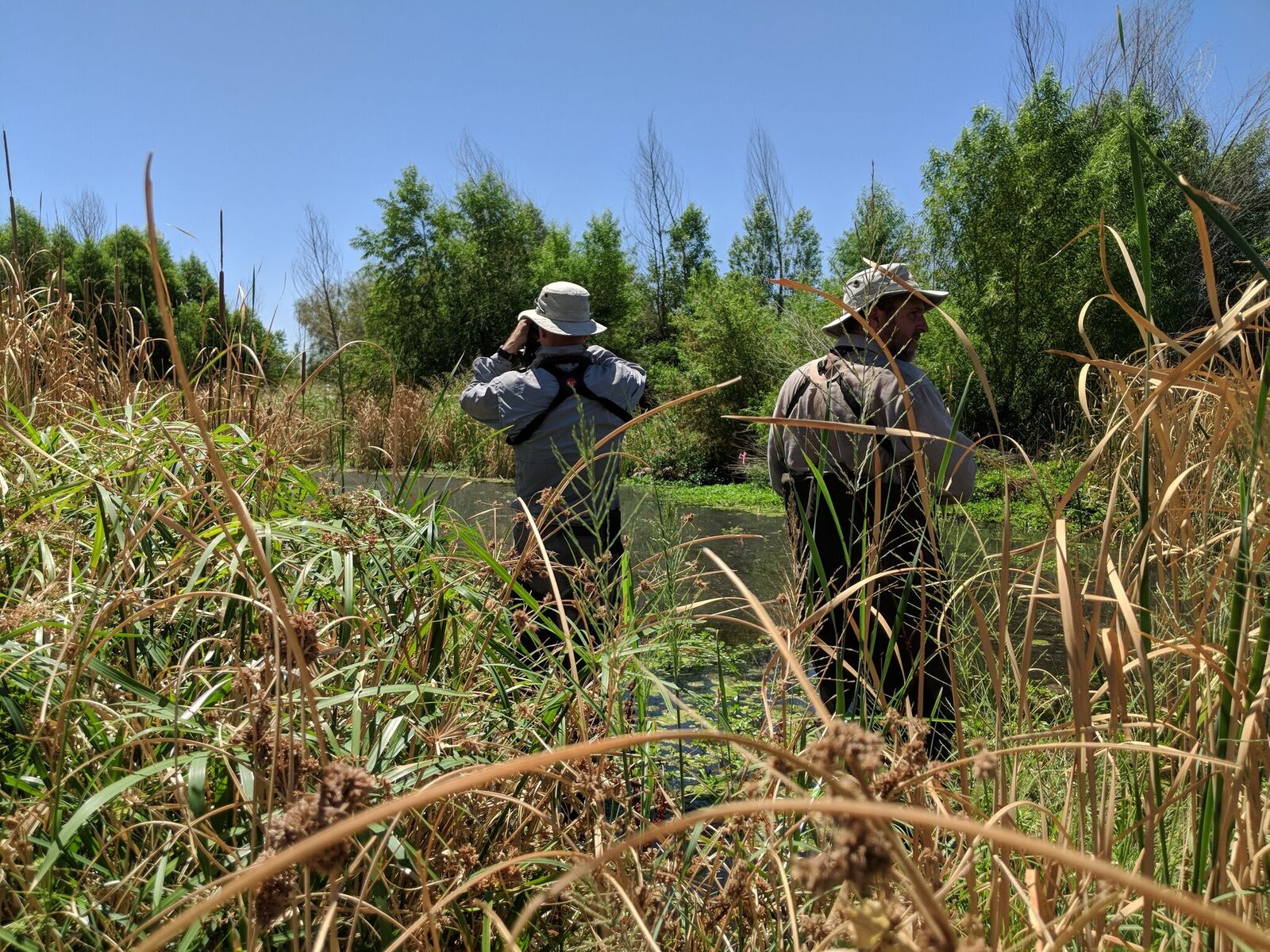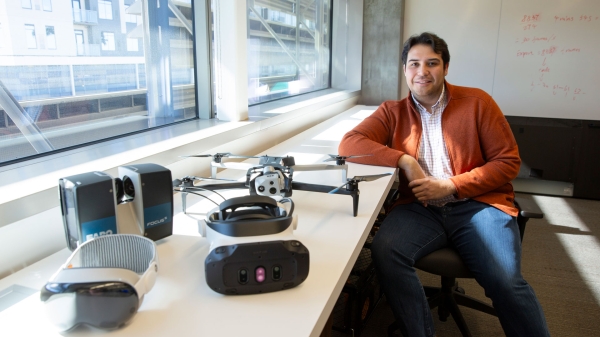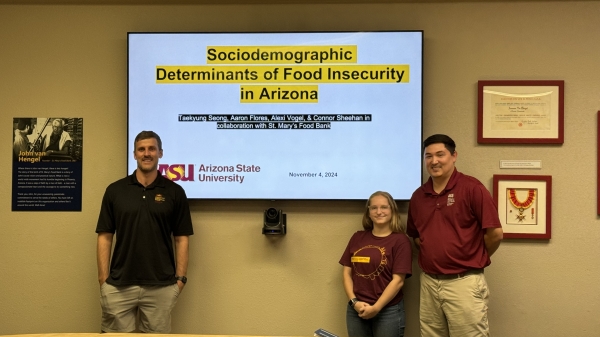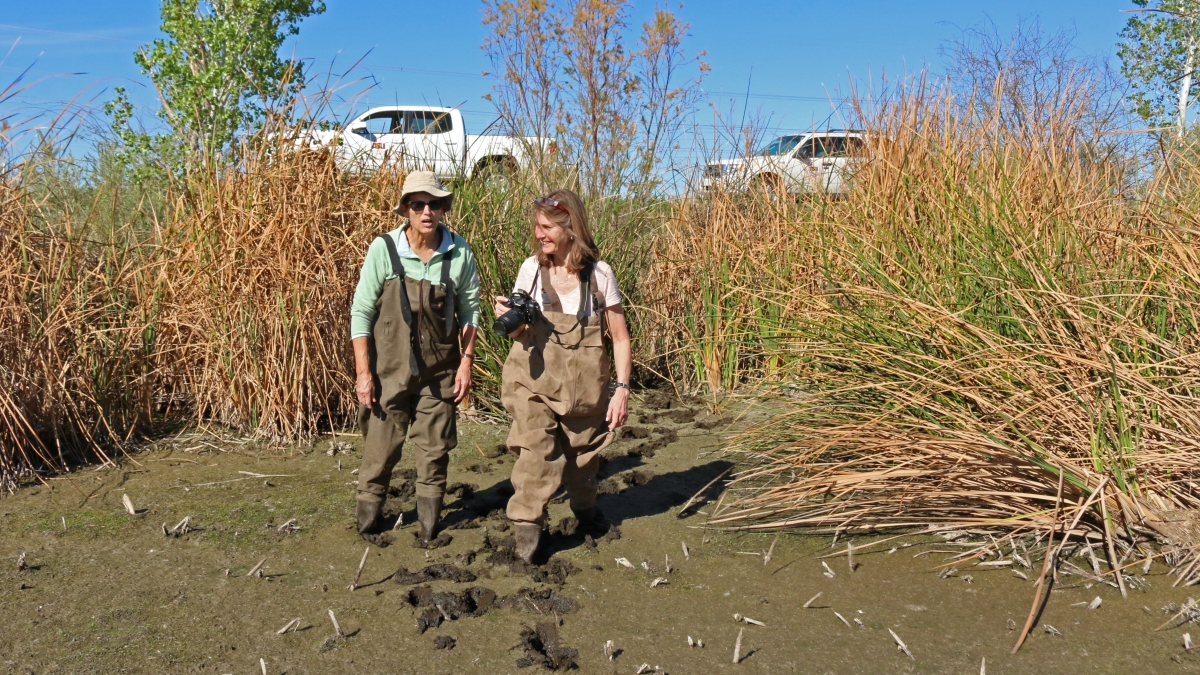For 20 years, Arizona State University’s Central Arizona–Phoenix Long-Term Ecological Research Program has been studying the Phoenix urban ecosystem from a holistic, interdisciplinary and social-ecological perspective. The National Science Foundation has funded CAP through grants since 1997 as part of its national network of 28 LTER sites. Recently, news broke that the fourth phase of CAP research will be fully funded through 2022.
“I was at a remote field camp in South Africa teaching my study abroad program when word came from the NSF that a decision had been made,” said Dan Childers, CAP’s director and School of Sustainability professor. “We didn’t even have cell service where we were, so I called our NSF program officer on a satellite phone. It was wonderful to get this very good news while in such a beautiful place!”
Much of the current CAP research is focused on urban ecological infrastructure, which is effectively everything except the built environment. The overarching goal of the program is to foster social-ecological research aimed at understanding complex urban ecosystems, using a holistic perspective while enhancing urban sustainability and resilience. The CAP research enterprise is organized around eight interdisciplinary research questions and includes nearly 60 ASU faculty from all four campuses, scientists from several other universities, and dozens of students and postdoctoral scholars.
One of CAP’s signature contributions to urban ecology is its long-term data sets and experiments, many of which include two decades’ worth of data on both the human and natural components of Phoenix and the surrounding desert. With the central research questions and long-term data, CAP researchers will continue to explore new social-ecological frontiers of urban ecology in residential landscapes, urban bodies of water, desert parks and preserves, flora and fauna, and urban design and governance.

CAP LTER researchers study Arizona wetlands. Photo by Quincy Stewart
In addition to these research endeavors, CAP’s Schoolyard LTER, Ecology Explorers, continues to connect teachers and students with CAP scientists through urban ecology protocols and learning modules based on CAP research. Ecology Explorers hosts summer professional development programs for K-12 teachers and offers internships for undergraduate students to reach K-12 students of low socio-economic status.
CAP is expanding its citizen science projects around Phoenix through collaborations with community partners such as the McDowell Sonoran Conservancy, the Central Arizona Conservation Alliance, the Desert Botanical Garden and numerous municipal agencies. CAP scientists and students continue to embed their research — and themselves — in communities throughout the Phoenix metro area, ultimately using CAP’s urban social-ecological knowledge to make Phoenix a better and more sustainable place to live.
The news of CAP’s fourth round of funding came as a triumph and a relief, as this time it was hard won. The process involved two proposals being submitted to the NSF within the past two years. The NSF funds LTER programs with six-year grants, but because of a difficult review process in 2016, the organization put CAP on probation and required that a second renewal proposal be submitted in March 2018. According to Childers, this second proposal was effectively “do or die,” meaning the only possible outcomes were full funding for the remaining four years or termination of the program.
“Thanks to the diligence and hard work of our 20-strong leadership team, CAP was able to submit a second renewal proposal earlier this year that reviewed well and garnered us full funding,” Childers said. “Four more years!”
Top photo: Sally Wittlinger and Lindsey Rustad at Tres Rios, Arizona. Photo courtesy of Mark Watkins
More Science and technology

Teaching construction realities with virtual environments
Visiting a construction site is a valuable learning opportunity for students who want to one day work in the industry. Experiencing the sights, sounds and other sensory elements of an active…
ASU, Mexico partner to build next generation of chipmakers, drive semiconductor innovation
Thousands of college students in Mexico will soon have the opportunity to enroll in Arizona State University’s new, free online course to learn the fundamentals of microelectronics and…

ASU, St. Mary’s Food Bank partner to tackle food insecurity in Arizona
Arizona State University and St. Mary’s Food Bank (SMFB) have joined forces to create an interactive data dashboard that tracks and maps food insecurity rates across Arizona. This innovative tool…
